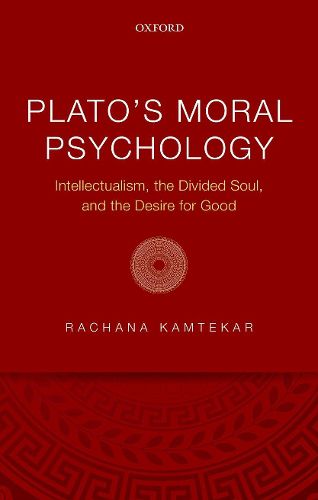Plato's Moral Psychology: Intellectualism, the Divided Soul, and the Desire for Good
Rachana Kamtekar (Cornell University)

Plato’s Moral Psychology: Intellectualism, the Divided Soul, and the Desire for Good
Rachana Kamtekar (Cornell University)
Plato’s Moral Psychology investigates Plato’s account of the soul and its impact on our living well or badly, virtuously or viciously. The core of Plato’s moral psychology is his account of human motivation, and Rachana Kamtekar argues that throughout the dialogues Plato maintains that human beings have a natural desire for our own good, and that actions and conditions contrary to this desire are involuntary (from which follows the ‘Socratic paradox’ that wrongdoing is involuntary). This is a very different interpretation of Plato’s moral psychology from the mainstream interpretation, according to which Plato first proposes that human beings only do what we believe to be the best of the things we can do (‘Socratic intellectualism’) and then in the middle dialogues rejects this in favour of the view that the soul is divided into parts with some good-dependent and some good-independent motivations (‘the divided soul’).
This item is not currently in-stock. It can be ordered online and is expected to ship in approx 2 weeks
Our stock data is updated periodically, and availability may change throughout the day for in-demand items. Please call the relevant shop for the most current stock information. Prices are subject to change without notice.
Sign in or become a Readings Member to add this title to a wishlist.


